It’s common to wonder, “how often do chickens lay eggs?” Most chicken keepers are looking to produce as many eggs as possible, whether those eggs are for selling or cooking with.
Not all chickens produce eggs at the same rate. The amount of eggs a chicken lays may vary based on their breed, age, and health. So, let’s look at how often most chickens lay eggs.
How Often Do Chickens Lay Eggs?
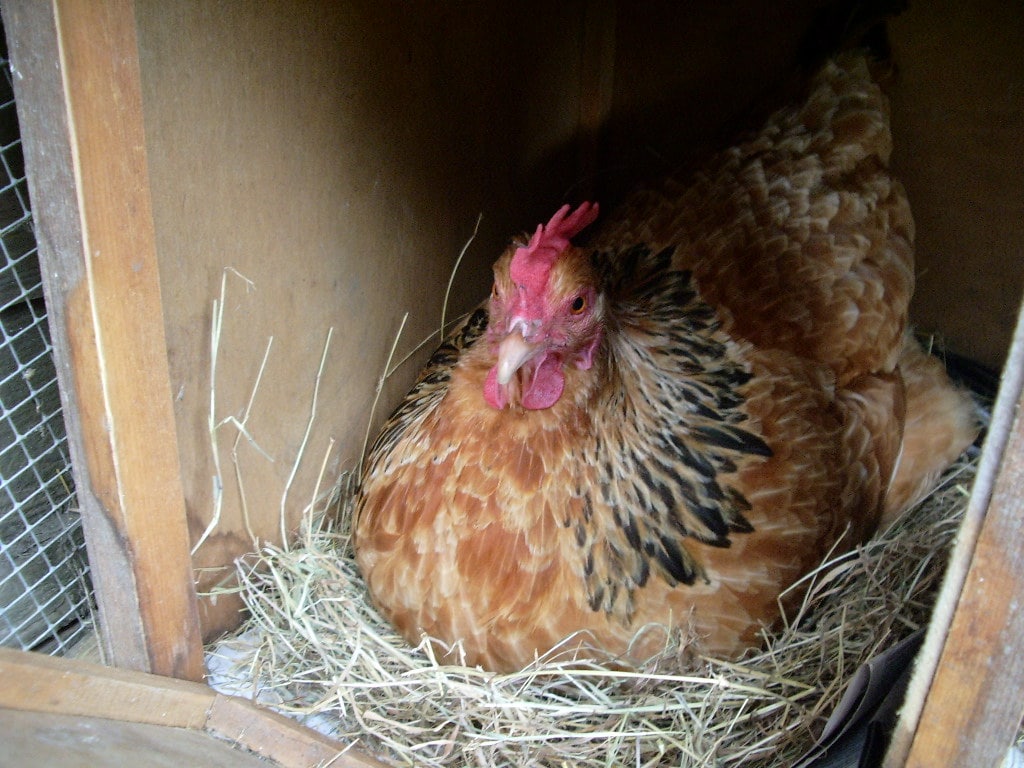
The frequency a chicken lays an egg varies greatly based on breed, but most chickens lay about 4 to 6 eggs per week. That number will decrease as the chicken ages, and it may vary based on health concerns and the time of year.
Do Chickens Naturally Lay Eggs Every Day?
Not all chickens lay eggs daily, but many lay about one per day. It’s possible for some hens to lay two eggs in a day, but never any more than that.
What Time of Day Do Hens Lay Eggs?
Most hens lay their eggs about halfway through the day. You’ll usually find fresh eggs about six hours after sunrise.
Chickens egg laying processes are triggered by the sunlight, which is why they always lay during the day. It’s possible for a hen to produce an egg overnight, but it’s rare.
Do Chickens Lay Eggs Year-Round?
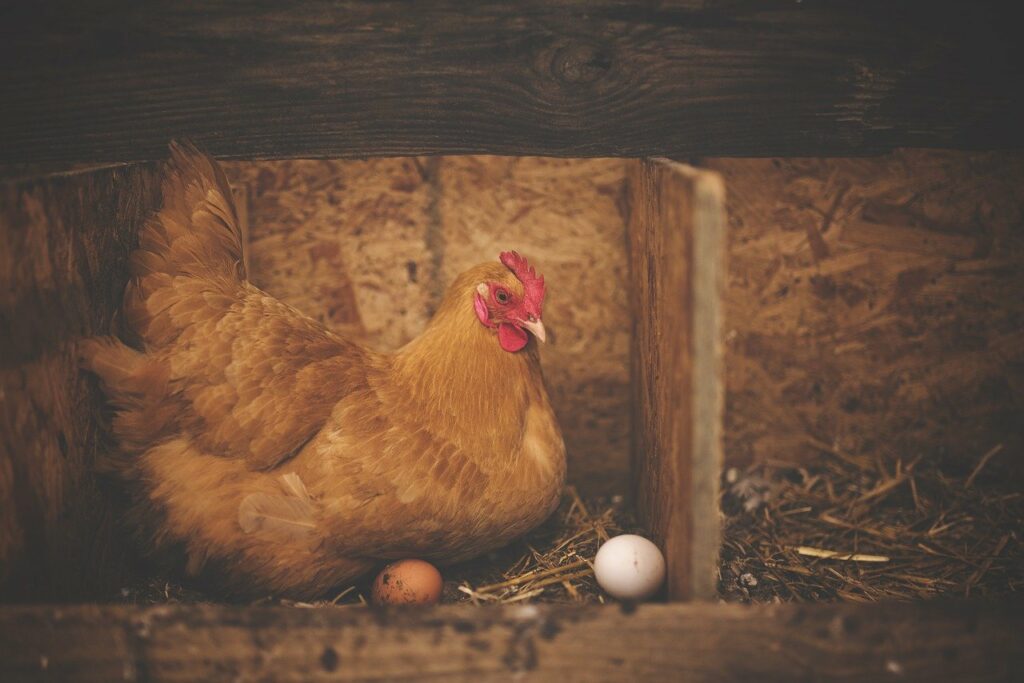
Since chickens are motivated to lay eggs based on sunlight, their egg laying capabilities will decrease in the winter as the days grow shorter. Some hens might stop laying eggs in the winter if the days are too short. However, they will resume in the warmer months.
Providing artificial lighting for your chickens can encourage them to lay eggs year-round. You can hook up the light to a timer to ensure that your hens get a few extra hours of light each day. However, this might not work for every chicken.
As usual, it depends on the breed, so some chicken breeds will produce eggs year-round. If that’s important to you, then take that into consideration when choosing a chicken breed.
Which Chicken Breeds Produce the Most Eggs?
There are three main kinds of chickens: production, heritage, and dual purpose. Production chickens produce eggs at a rapid pace while dual purpose are good for laying eggs and providing meat. Heritage chickens lay eggs less frequently, but they’re designed to live a much longer life.
So, if you’re looking for a chicken that produces lots of eggs, you might want to choose one of the following breeds. Most are known as production chickens.
Leghorn
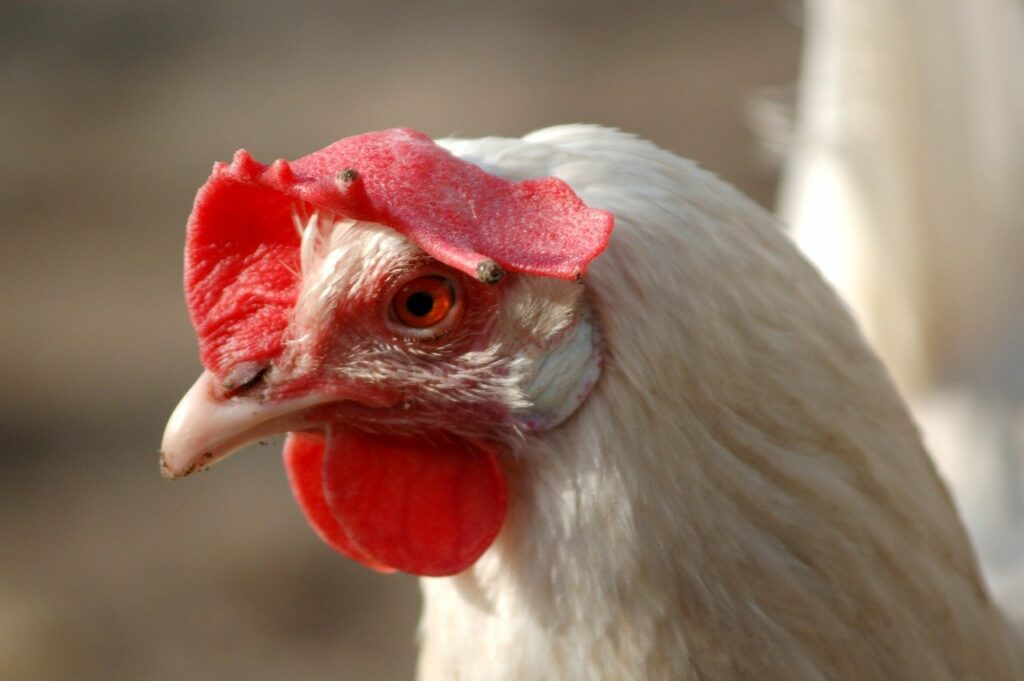
Leghorn chickens lay large white eggs about 5 to 6 times per week. One chicken can lay up to 280 per year. They usually start laying eggs at around 16 to 17 weeks old.
They thrive best in the summer, so they’ll consistently lay eggs as long as they stay warm with proper food and water.
Rhode Island Red
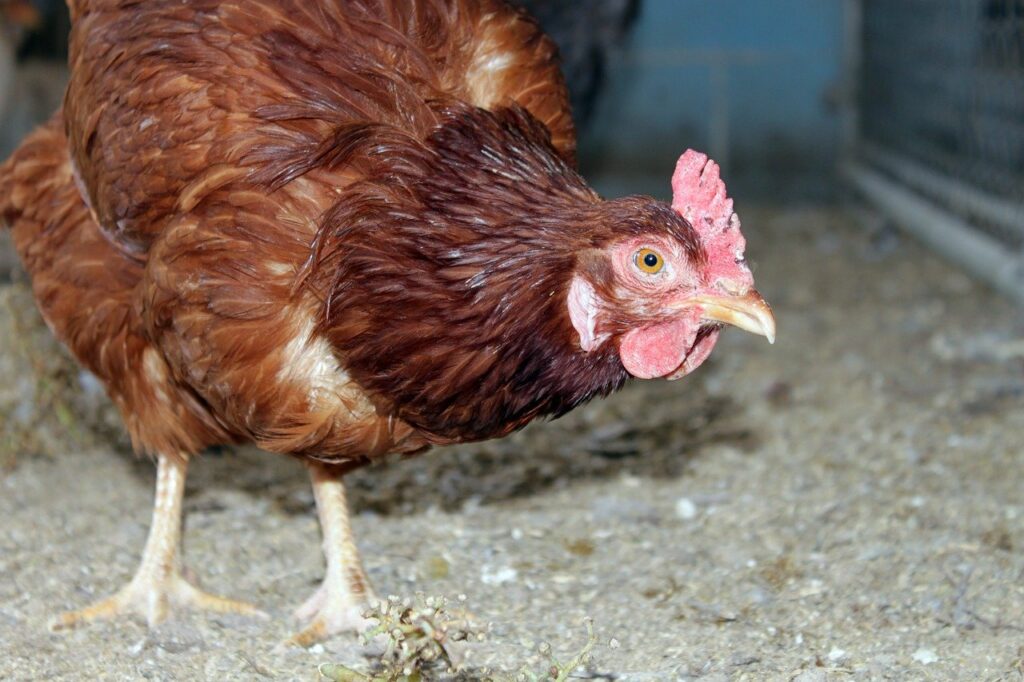
Like Leghorns, Rhode Island Reds also lay 5 to 6 eggs per week. They start laying eggs at 18 to 24 weeks old, and they end up with about 260 eggs every year.
Rhode Island Reds are great at foraging, so they’re healthiest as free range chickens. They can be bossy, so it’s best to keep them separate from smaller chickens.
Easter Egger
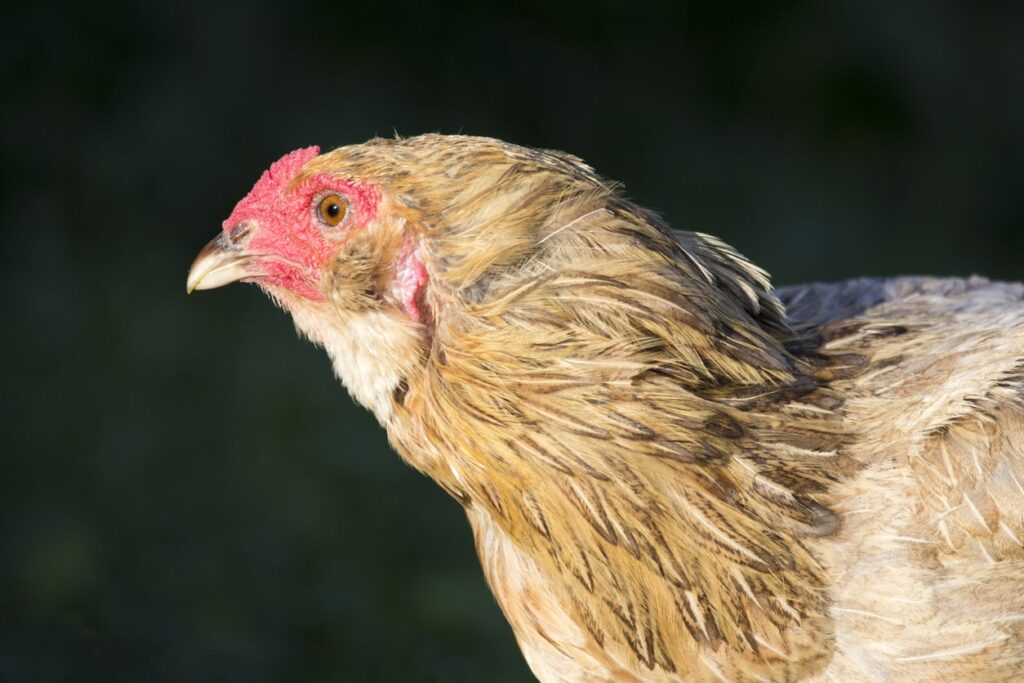
Every week, Easter Egger chickens lay about 4 eggs each. They can lay up to 250 eggs annually, but they start a little late at 25 to 30 weeks old.
These chickens were bred using Ameraucana and Araucana chickens to increase egg production. Not all hens lay the same colored eggs, so you might end up with a “rainbow” of eggs.
Plymouth Rock
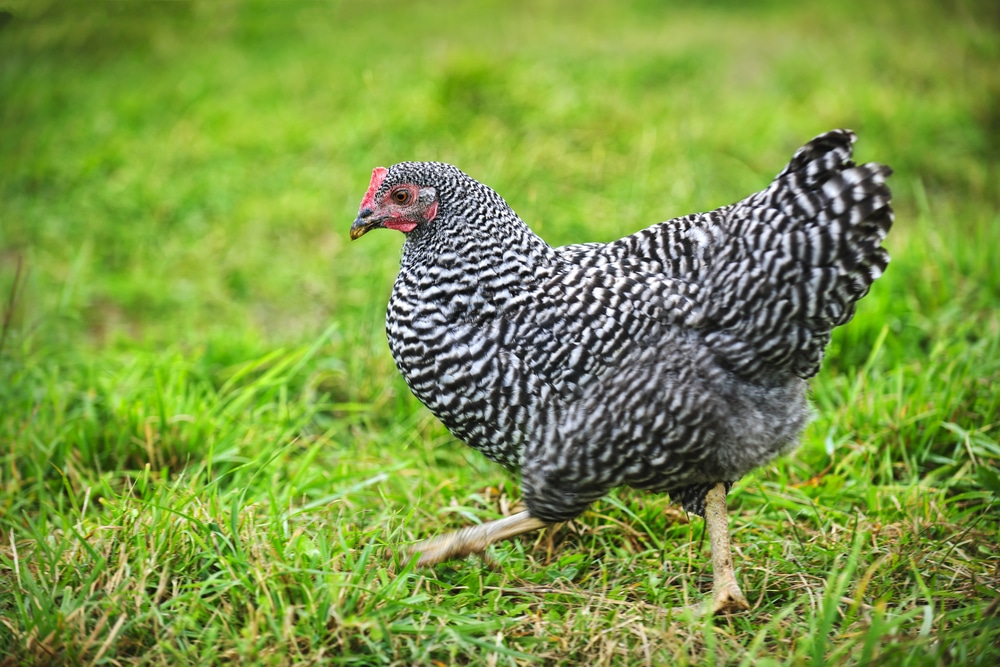
Plymouth Rocks lay about 4 to 5 eggs weekly. They start laying at 18 to 22 weeks old, and they can end up with about 280 per year.
These chickens are great for free range because they’re skilled foragers. Their eggs are usually light brown or peach colored.
Sussex
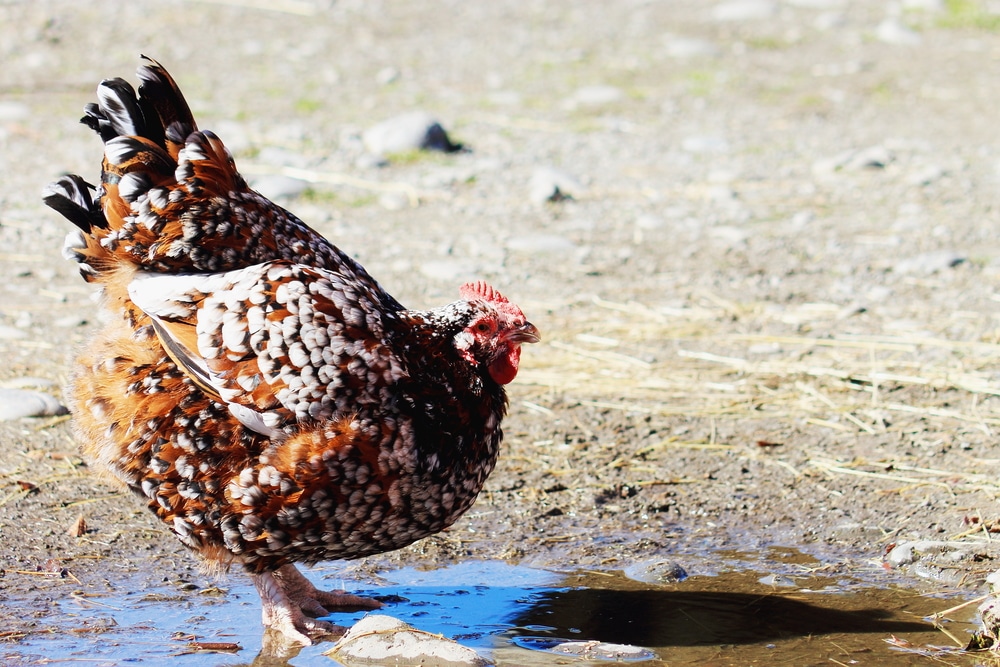
Sussex chickens usually lay 4 to 5 eggs a week. Yet, it varies based on the Sussex variety. Speckled Sussex chickens usually lay the most, resulting in about 250 to 300 per year. They start laying at 16 to 20 weeks old.
These chickens are large birds, but they’re also docile and calm. So, they might need to be separated from other breeds because they regularly get bullied.
Orpington
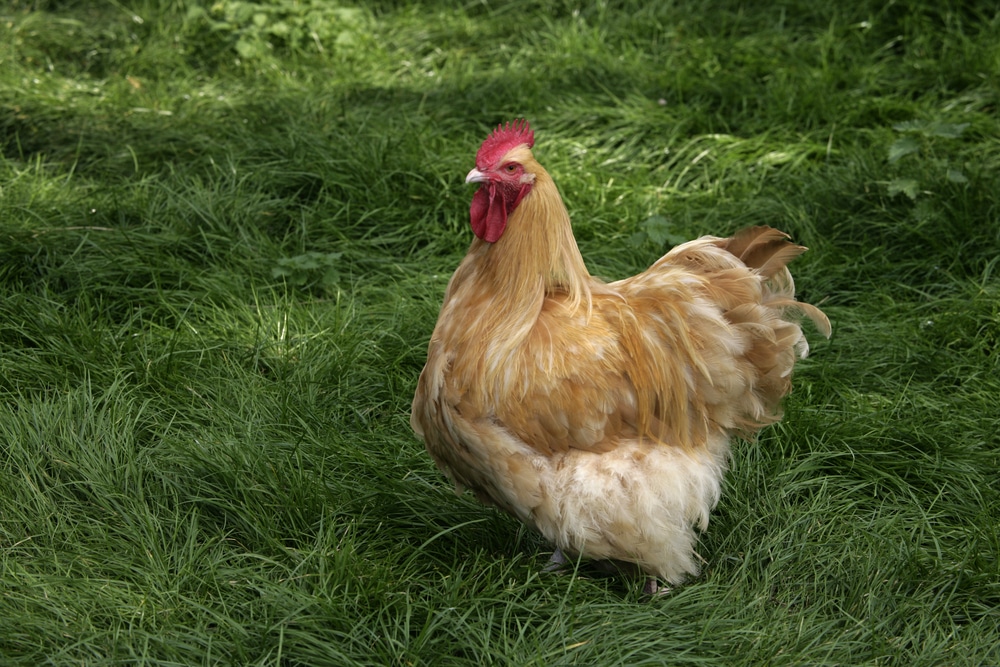
Orpingtons are large birds that lay about 3 to 4 eggs each week. Every year, they create 150 to 200 eggs, and they start laying at 19 to 24 weeks old.
These chickens are easy to care for due to their docile temperament. They don’t fly well, so they’re best in a confined area that’s safe from predators.
How Do Chickens Lay Eggs Without a Rooster
When hens are born, they already have all their eggs inside their bodies. They will produce all those eggs throughout the course of their life even if the eggs are never fertilized by a rooster.
The eggs are released from the ovary to the oviduct when they produce an egg yolk. The egg white appears shortly after. Then, when the egg reaches the hen’s uterus, the shell is created. If the egg’s shell has a specific color, it will also appear in that stage.
It takes at least 20 hours for an egg to produce inside a hen’s body. Once the egg has fully developed, the chicken will lay it regardless of if it’s fertilized or not.
If you have a rooster in the enclosure, the egg may become fertilized and create a chick. Otherwise, the eggs will always be used for human consumption instead. So, chickens don’t need a rooster to lay eggs, but if you want more chickens, then adding a rooster to the space is a good idea.
Do Chickens Get Sad When Their Eggs are Taken?
No, most chickens will have no reaction to you taking their eggs. Yet, broody hens may get angry when their eggs are taken. So, if you’re worried about your chickens feeling upset without their eggs, choose breeds that are non-broody.
Laying eggs is an instinct for chickens. So, many of them do it without any emotional thoughts. When the eggs get taken, the hens might not even notice or care. Most chickens will leave their eggs alone after they’re laid, and they’ll quickly get used to someone taking them.
When Do Chickens Stop Laying Eggs?
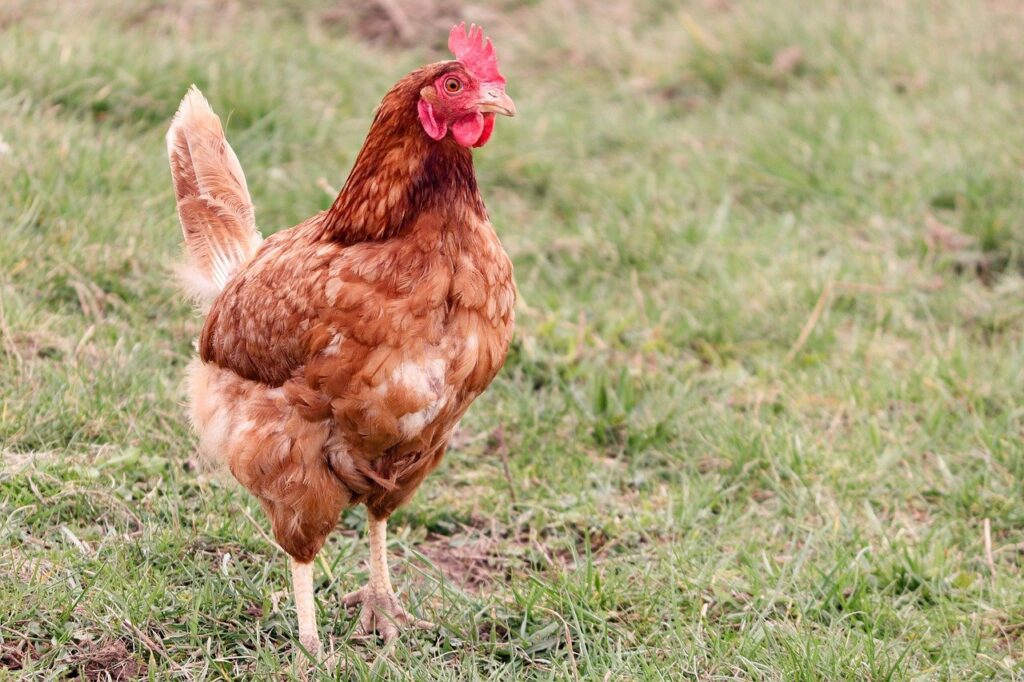
How long a chicken lays eggs for will depend on how long they live. They lay eggs most frequently in their first two years of egg laying, but that number will gradually decrease as they age. Most chickens slow down egg production by age 6 or 7, with egg production stopping not long after.
Some hens might even stop laying eggs sooner if they’re ill or not properly taken care of. Most egg-laying hens can live to be 8 to 10 years old, but their final years will consist of very few eggs. Most keepers aren’t interested in chickens that don’t lay eggs.
What Should You Do if Your Chicken Isn’t Laying Eggs?
First, you should make sure the chicken is healthy. If they’re still young, there’s a chance that a hen could stop laying eggs due to poor nutrition, molting, stress, or a lack of light. So, providing them with better care might increase their egg-laying abilities again.
However, if the halt in eggs seems to be because of age instead, then it’s likely that they will never lay more eggs. In that instance, there are two main things you can do.
Find Other Jobs for the Chicken
Egg laying isn’t the only benefit chickens can have on a farm. By letting them roam around, they can eat the pesky bugs and weeds that you don’t want near your chickens.
Older hens are also better mothers than young hens, so if you have chicks or pullets in your coop, they’ll be sure to protect them. They’re also more alert to predators, which means they can help warn the younger chickens before it’s too late.
Use Them for Meat
If you don’t need extra chickens roaming around and you don’t know anyone else that does, you can use the older hens for meat. However, older hens often have tougher meat than young hens, so you might only be able to cook certain dishes with their meat.
However, many keepers only keep chickens for eggs and not meat. So, if you don’t like the idea of killing your chickens, then the first option is likely better for you.
Caring for Healthy Chickens and Eggs
The key to getting lots of eggs from your chickens is taking great care of them. With lots of space, proper nutrition, and adequate shelter, your hens will stay healthier, allowing them to lay more eggs. Of course, the breed you choose is also a crucial factor, but not without all the care requirements.
Egg laying is a natural instinct for chickens. So, whether you want baby chicks or edible eggs, it’s important to set your chickens up for success to help them create as many healthy eggs as possible.